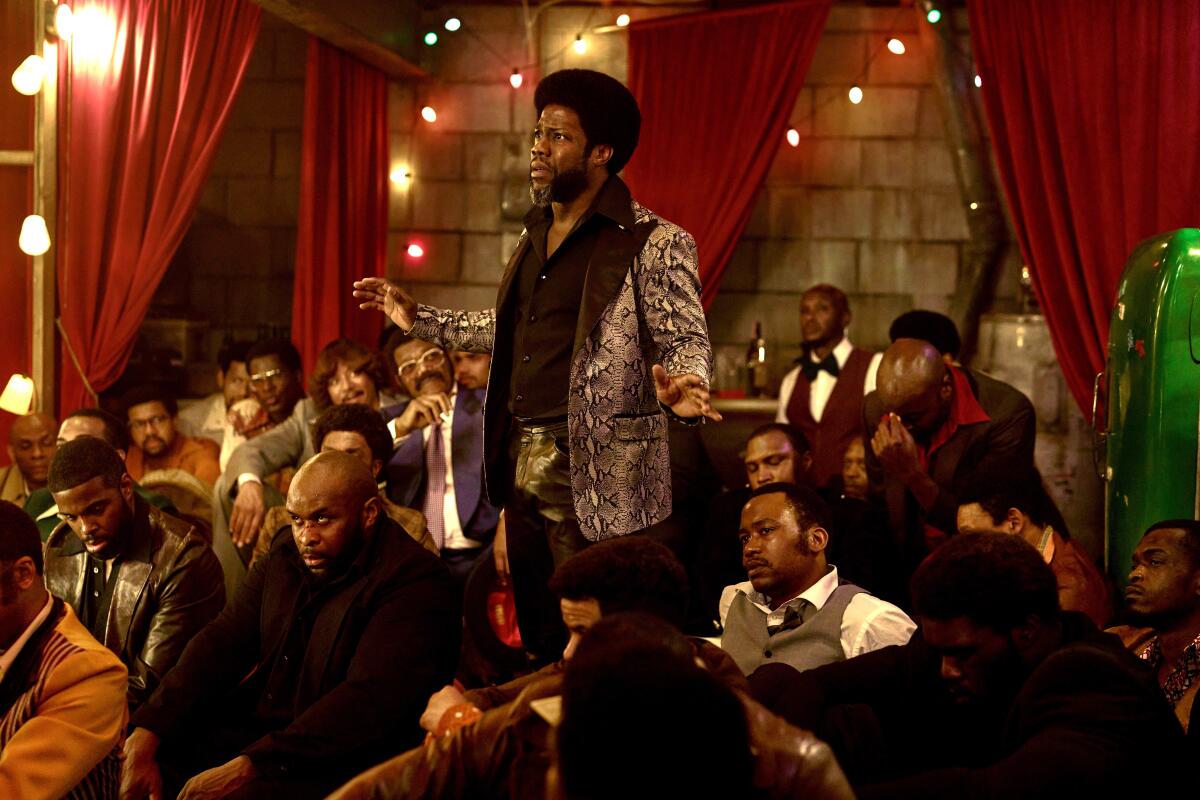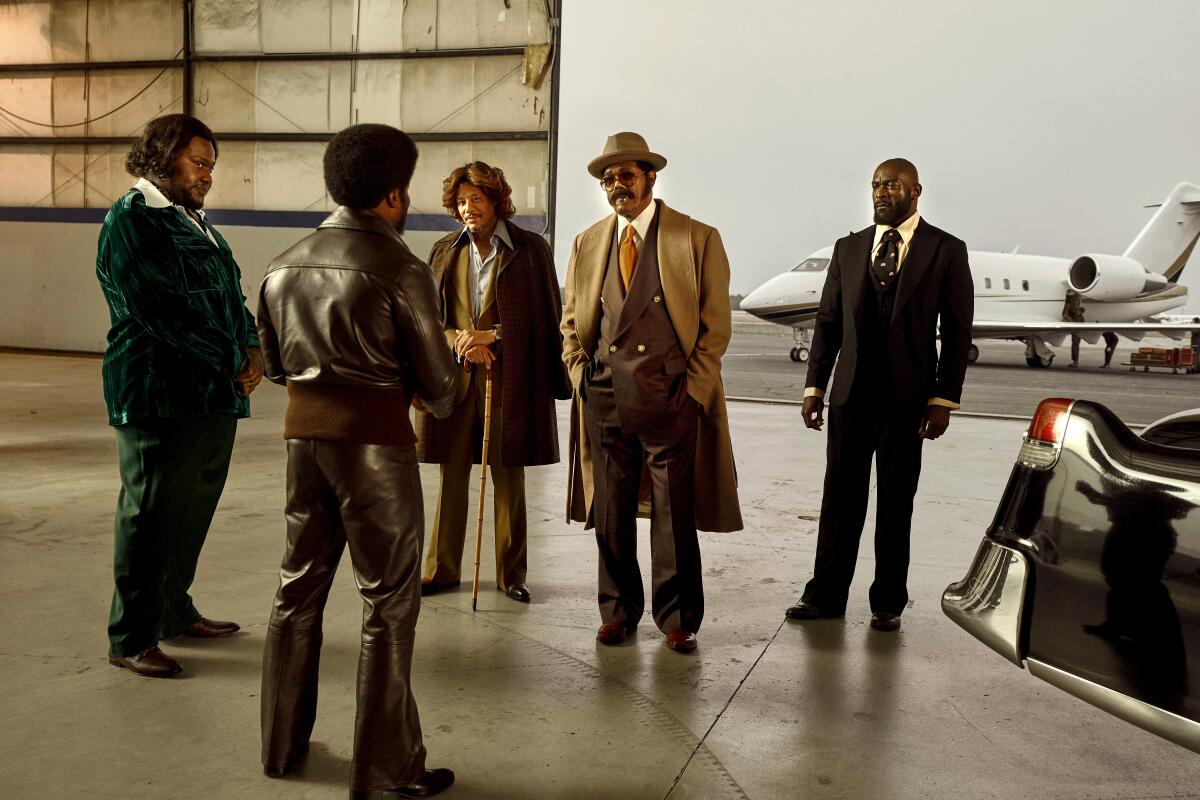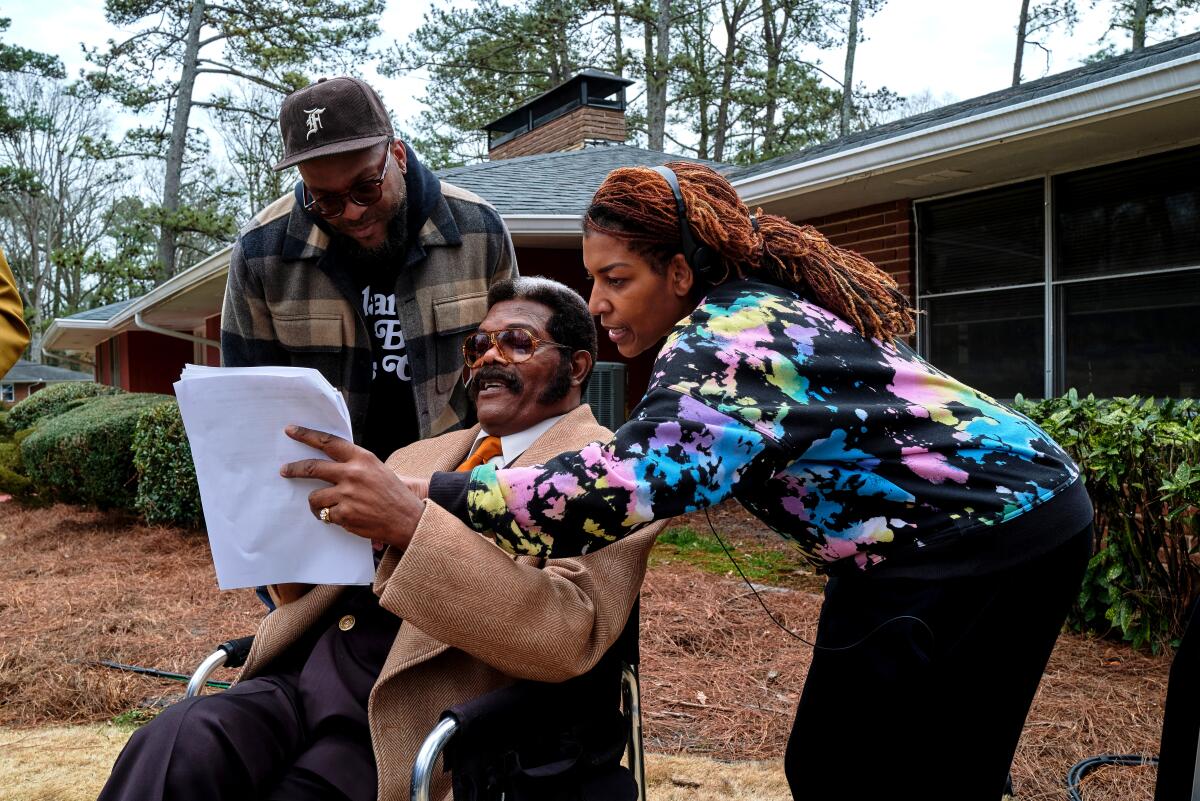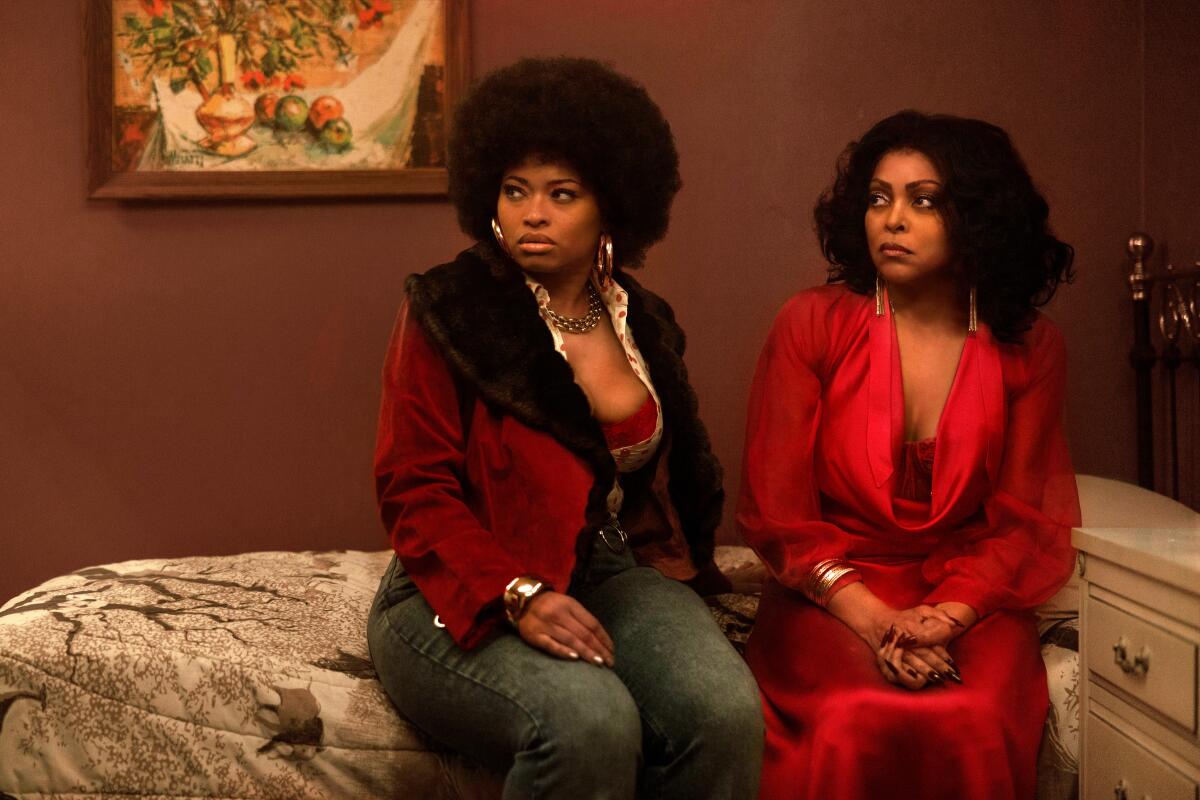‘Fight Night: The Million Dollar Heist’ is an ode to Atlanta and ’70s cinema

- Share via
Scores of films and documentaries about Muhammad Ali have spotlighted his historic 1970 comeback fight, which took place more than three years after he was stripped of his heavyweight title for refusing to be drafted during the Vietnam War.
But “Fight Night: The Million Dollar Heist,” the latest project revisiting that monumental night, focuses on a main event that erupted away from the boxing ring.
The eight-part Peacock miniseries zeroes in on a violent armed robbery just miles from the sold-out bout at Atlanta’s Municipal Auditorium when thugs invaded an after-party attended by top Mafia bosses and made off with more than $1 million in cash and jewels. The incident, according to producers, was pivotal in positioning Atlanta away from its Jim Crow past and into a metropolitan destination for Black wealth — nicknamed the “Black Mecca.”
Premiering Thursday, “Fight Night” is based on the 2020 iHeart true crime podcast of the same name and features a top-line ensemble including Samuel L. Jackson, Taraji P. Henson, Terrence Howard, Don Cheadle and Kevin Hart.

While viewers will likely be drawn to the starry cast and Hart’s dramatic lead turn as fast-talking hustler Gordon “Chicken Man” Williams, the project is distinguished by a distinctive stylistic vibe that captures the flavor of classic 1970s films, injecting it with the in-your-face swagger of blaxploitation fare such as “Shaft” and “Superfly.” The old-school R&B score is crammed with vintage hits by Billy Paul (“Am I Black Enough For You?”) and the Temptations (“Papa Was a Rolling Stone”), while much of the fast-paced action is shown from several angles simultaneously on the same screen.
“I was always fascinated by the aesthetic of those films, and the attitude where nothing is subtle and everything comes at you with propulsive music and fashion,” said Craig Brewer, who directed four episodes, including the premiere. “It’s about people who are desperate to get what they want, and what they need.”
Shaye Ogbonna, who created the series, serves as showrunner and wrote some of the episodes. “We’ve made something that you’ve never really seen before from a storytelling viewpoint,” he said.
Ogbonna felt an added commitment to capture the authenticity and the importance of that evening and what it signified for Atlanta’s Black population.
“This is personal for me, and for Craig,” he said in a Zoom interview. “I’m a son of the city and a product of the community. With the themes and ideas we are exploring, there is a responsibility that I take very seriously. This is a high-level Black project with a lot of resources. It’s important that the story is told correctly and accurately. You don’t get a lot of opportunities like this.”

At the center of the saga is Chicken Man, a desperate dreamer who sees a life-changing opportunity with the hoopla surrounding Ali’s bout with Jerry Quarry. When he hears that New York City crime boss Frank Motin (Jackson) and other prominent gangsters will be traveling to Atlanta for the fight, he puts together a lavish party that he hopes will establish him as a major mover and shaker.
“At its heart, this story is about a city that is beginning to embrace its culture,” Brewer said. “We see that process through the character of Chicken Man, dealing with these gangsters from New York and Chicago who look down on him and how that makes him feel.”
When the party becomes a crime scene, he finds himself facing a former adversary — police detective J.D. Hudson (Cheadle) who has been tasked with protecting Ali and now must investigate the heist.
Ogbonna, who has penned several episodes of Showtime’s “The Chi,” and Brewer, whose directing credits include 2005’s Memphis-set drama “Hustle & Flow” and Eddie Murphy’s “Dolemite Is My Name” had never worked together previously before joining forces on “Fight Night.” But they discovered they had similar interests.
“Our sensibilities are the same,” said Ogbonna. “A lot of the movies we would talk about were movies of the ’70s and blaxploitation. That informed the elevated cinematic aesthetic we wanted in telling this grounded Black story. That’s the look we wanted.”
Brewer was also influenced by the work of Oscar-winning director Norman Jewison, who died in January and whose work often addressed social and political issues.
“I started doing a deep dive of his films. In the final number of ‘Jesus Christ Superstar,’ there’s this moment that is ’70s as all get-out with the Afros and the fashion,” Brewer said. “I noticed the lights had these wonderful filters on them. I thought that would make a great look for the fight with Ali.”

Another source of inspiration was Jewison’s 1968 heist movie “The Thomas Crown Affair,” one of the first major films to use split-screen technique.
“It’s told in all these panels on the same screen,” Brewer said. “That has been done by Quentin Tarantino and others who want to go in a ’70s direction as a gimmick, but I found it had a wonderful storytelling function. You could reference something and see it at the same time from different angles.”
Also instrumental to portraying that era with accuracy was Jackson, who lived in Atlanta at the time of the fight.
“Sam has an Atlanta connection,” Ogbonna said. “Having him around was like having an historian on set. He got married in the church around the corner from where Chicken Man’s party was.”
Ogbonna said he is extremely proud of the finished product and hopes audiences will be entertained. He’s also hopeful that the main purpose behind “Fight Night” is clear.
“I want them to know something about Atlanta that we now know as this American southern metropolis,” he said. “It all started with these people, just regular folks who made decisions—some good, some bad. It’s about aspirations. We know our history. The South had something to say, and we shouted it very loudly.”
More to Read
The complete guide to home viewing
Get Screen Gab for everything about the TV shows and streaming movies everyone’s talking about.
You may occasionally receive promotional content from the Los Angeles Times.







